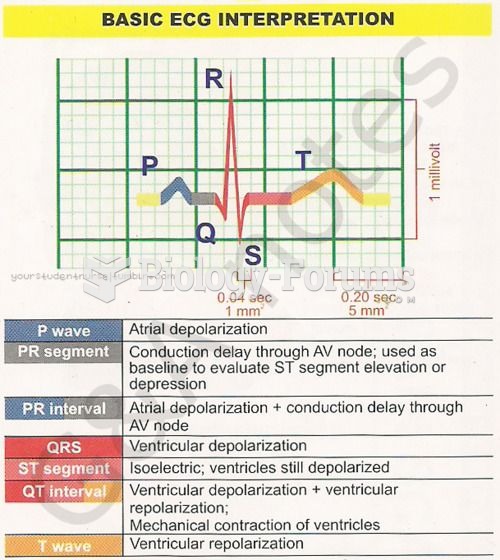|
|
|
Human kidneys will clean about 1 million gallons of blood in an average lifetime.
The human body produces and destroys 15 million blood cells every second.
Atropine was named after the Greek goddess Atropos, the oldest and ugliest of the three sisters known as the Fates, who controlled the destiny of men.
Bisphosphonates were first developed in the nineteenth century. They were first investigated for use in disorders of bone metabolism in the 1960s. They are now used clinically for the treatment of osteoporosis, Paget's disease, bone metastasis, multiple myeloma, and other conditions that feature bone fragility.
If you use artificial sweeteners, such as cyclamates, your eyes may be more sensitive to light. Other factors that will make your eyes more sensitive to light include use of antibiotics, oral contraceptives, hypertension medications, diuretics, and antidiabetic medications.
 Patients with physical special needs, such as a wheelchair, need to have this documented in their he
Patients with physical special needs, such as a wheelchair, need to have this documented in their he
 Glioma. (a) Illustration of a large glioma (colored area) within the left cerebral hemisphere in a s
Glioma. (a) Illustration of a large glioma (colored area) within the left cerebral hemisphere in a s
 Large families on U.S. farms used to be common. Children helped plant and harvest crops, take care ...
Large families on U.S. farms used to be common. Children helped plant and harvest crops, take care ...




